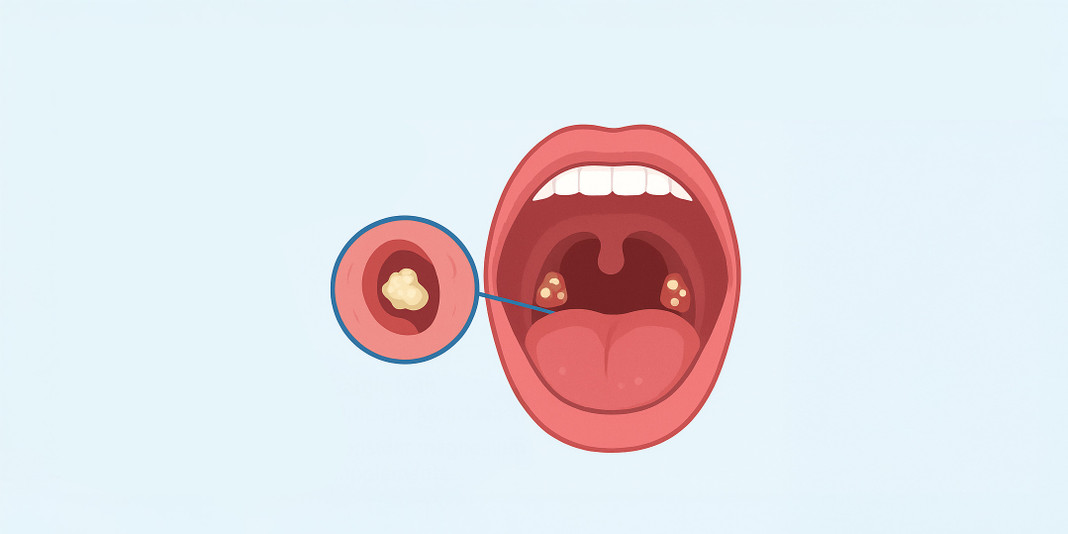
Tonsillar Stones: Causes, Prevention, and Practical Approaches
Tonsillar stones, also known as tonsilloliths, are small calcified formations that develop in the tonsil crevices. They are essentially a combination of calcium, trapped debris, food particles, and bacteria — and while they’re rarely harmful, they can be uncomfortable and sometimes difficult to remove.
Importantly, the presence of tonsillar stones is not necessarily a reflection of poor oral hygiene. Rather, their formation is often linked to individual differences in tonsil anatomy, oral bacteria, and oral health habits. Some people naturally have deeper tonsil crypts, others may harbour more oral bacteria that accumulate in these recesses, and in some cases, inefficient chewing can leave behind larger food particles that become lodged and calcify over time.
While we still don’t fully understand why tonsillar stones form, there are practical steps that can help manage and potentially reduce their occurrence.
One simple and effective approach is to gargle regularly with Clinisept Mouthwash, a hypochlorous solution that safely eliminates tonsil bacteria at the point of contact. Despite its mild “swimming pool” scent, Clinisept leaves no lingering taste and works by adhering to the tissues to kill bad breath-causing bacteria, calm inflammation, and reduce the likelihood of calcium deposition. Used daily, it can help maintain a clean oral environment, prevent tonsil stone formation, and support tonsil health.
Clinisept Mouthwash
There are also broader contributing factors to consider. Post-nasal drip, for example, can lead to mucus accumulation on the tonsils, while dry mouth syndrome reduces the natural cleansing effect of saliva, increasing the risk of debris build-up. Addressing these underlying issues — through hydration, allergy management, or nasal congestion treatment — can be equally important.
Some theories suggest that magnesium deficiency might contribute to calcium deposition in tonsils, though this remains unproven. Anecdotally, a few people find benefit in chlorophyll gargles, as chlorophyll may help neutralise oral odours. Evidence is limited but it is sometimes suggested as a natural remedy for bad breath.
DoSe Magnesium Complex
For additional support, you may also wish to consider Liposomal CoQ10 supplements. Certain anaerobic bacteria thrive in low-oxygen environments such as the tonsils and are believed to contribute to tonsillar stone formation and halitosis. CoQ10 helps oxygenate tissues, making these bacteria less likely to thrive.
DoSe Liposomal CoQ10
Ultimately, managing tonsillar stones often comes down to consistency rather than cure — maintaining good oral hygiene, supporting the body’s natural defences, and creating an environment less conducive to bacterial accumulation.



